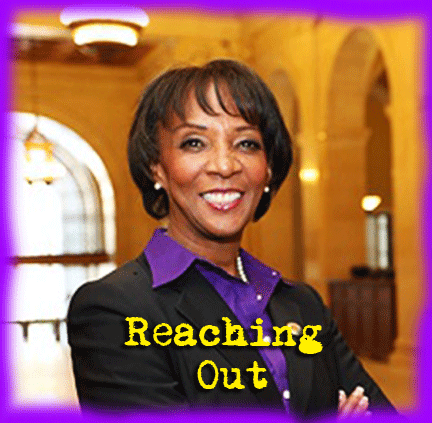MORE THAN THE USUAL SUSPECTS
Last Friday, Los Angeles District Attorney Jackie Lacey held a meeting with a line-up of mental health experts, community service providers, and local policy advocates to discuss how best to create a rigorous diversion system to keep LA County’s mentally ill out of the street-to-jail cycle that has been the rule in the county—a cycle that Lacey is determined to break.
With the DA was Nedra Jenkins, the executive director of Lacey’s mental health diversion task force.
According to those whom we spoke with, this particular meeting was refreshingly unique in that it didn’t feature the usual suspects, but instead was packed with those working the front lines with some of LA’s most troubled populations. Furthermore, many of those invited are known for saying what they think, particularly when it comes to public officials. Yet, most were reportedly pleasantly surprised at the forthright and candid exchange that took place between Lacey & co, and those experts from the community.
The event was organized by So Cal ACLU legal director, Peter Eliasberg, and, he too, was encouraged by the outcome.
“When some of us first proposed the idea,” said Eliasberg, “we originally were going to organize a town hall. But then we realized that it made sense to first have a meeting with the people who are really in the trenches on this stuff.
“And not only did the DA and Nedra Jenkins like the idea,” he said, “they didn’t look at it as just an opportunity to talk. They said, ‘We really want to listen and hear what these people have to say. We want to learn from them.'”
And the sentiments turned out to be more than lip service.
Lacey was at the meeting for more than two hours, Jenkins even longer. “And I’m quite sure she will be following up with everybody, either in smaller groups or individually. They want to build on this.”
Rev. Peter Laarman of Justice not Jails, had a similar take to that of Eliasberg. In a commentary he posted over the weekend, Laarman wrote that the meeting was “the kind of event that is highly unusual in Los Angeles County: a candid exchange of information and opinion between top leaders of a public agency and community stakeholders.”
Among the things the discussion revealed, wrote Laarman, was “how terribly broken the current ‘system’ for service delivery is: e.g., the separation of drug treatment from mental health treatment on account of bureaucratic silos, the mismatch between various programs related to housing, even the fact that while the LAPD brags about having specialist teams to deal with the mentally ill, those teams aren’t actually available 24-7: it appears that they work what we used to call ‘bankers’ hours.'”
Mark-Anthony Johnson from Dignity & Power Now noted that the mentally ill in LA County Jail are disproportionately African American.
Kim McGill, an organizer for the Youth Justice Coalition, talked about how conditions of confinement can exacerbate mental illness (an issue that is part of what may still result in a federal consent decree for LA County’s jail system).
Not everyone agreed. But the back and forth was respectful.
Afterward, Lacey too called the meeting very productive.
“I gained more insight into what will be needed in the futureee to provide a comprehensive diversion plan…” she said when we asked what she thought the exchanged accomplished. Lacey also said that “a significant impediment to progress is the lack of funding for supportive housing.” But some of those at the meeting, she said, came up with new ideas as to how the county might come up with the necessary dollars. “I look forward to continuing this discussion…”
Good idea. Go, Jackie!


Re:Charleston Police Department. Sad that the detector for integrity (or lack thereof) in Police Officers has to be evident by videotape or camera.